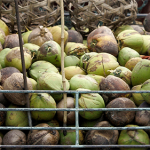In the 21st century, it almost feels as though our knowledge of the world has extended to all its corners. There are few things that remain a secret or hidden, and perhaps one of those is the use of animals for labour in factories around the globe. Unsurprisingly, their usage has sparked outrage and debate over their rights as sentient beings. Many people wonder whether animals should be used for labour at all. Is it ethical to put them through this kind of stress? Is there another way? You might be surprised to know that these questions are discussed quite frequently by animal rights activists and welfare groups. If you’re curious about this topic, read on to find out more about the reality of animal labour and how these creatures are treated in factories.
Animal labour is the practice of using animals to assist humans with tasks or with the production of goods in agriculture, forestry, fishing, and other industries. It is a form of animal husbandry as well as an instance of anthropomorphism. Animals that are domesticated are most commonly used for labour, such as cows for milk, goats for milk and cheese, pigs for meat and bacon, sheep for wool, and chickens for eggs. In some cases, humans have found ways to use wild animals for labour, such as monkey for harvesting, dolphins for marine work, and others.
The Reality of Animal Labour: Should We be Shocked?
The use of animals for labour is nothing new, and it’s unlikely that it will stop any time soon. However, the way in which these creatures are treated is what has sparked outrage in recent years. Many animals on factory farms are kept in terrible conditions, and are forced to live short and tragic lives. The majority of these animals are kept in small cages, cramped together with little room to move.
There is no international legislation that forbids the use of animals for labour. The only laws that govern the usage of animals for labour are the local laws of each country. For example, there is Animal Welfare Act that no animal should be subjected to unnecessary pain or suffering during the labour process. There are a variety of ways in which animals are used for labour, including being kept on farms for dairy and meat production, being kept in laboratories for medical testing, and being kept for companionship. Each of these uses has a different set of laws surrounding it, but in most cases, animals are protected from unnecessary harm.
How are Animals Treated during Labour?
The best way to describe how animals are treated in factories during labouring is to compare it to how humans were treated during slavery. Humans were held against their will, forced to work long hours, and often given inadequate food and clothing. Animals are treated in much the same way. They are kept in small cages, and forced to live in unsanitary conditions. This practice has been done to make sure that the animals are kept in a controlled environment, where the humans can maximize their profit. There are some signs that the industry is attempting to improve. For example, some animals are given more room to move around and play as well as toys to keep them occupied. However, this is not still the norm.
Should We Avoid Animal Labour Exploitation?
An animal can be exploited in the same way that a human is exploited for labour. The products of an animal’s efforts and suffering are used by those who use them for labour without benefiting the animal. Working animals often perform hazardous and even deadly tasks. Working animals also risk accidental injury and death. If they suffer serious wounds, they are usually be killed. Poor care of the animals, inadequate nutrition, and inadequate shelter are reasons why this activity is not right. As for an example, there is a coconut farmer practice purposely breeds and trains monkeys to collect up to hundreds of coconuts daily, despite the fact that the monkeys are forbidden from eating the coconuts. The monkeys are sometimes punished for defending themselves when they feel compelled to do so.
By avoiding animal labour exploitation, you will prevent the suffering of millions of animals. This way, you can be sure that the animals are being treated ethically and well. As a responsible manufacturer of coconut and by-product barbecue briquettes, PT. Cavron Global seeks to preserve the environment by producing briquettes without harming the environment through not cutting down trees or using animal labours.









